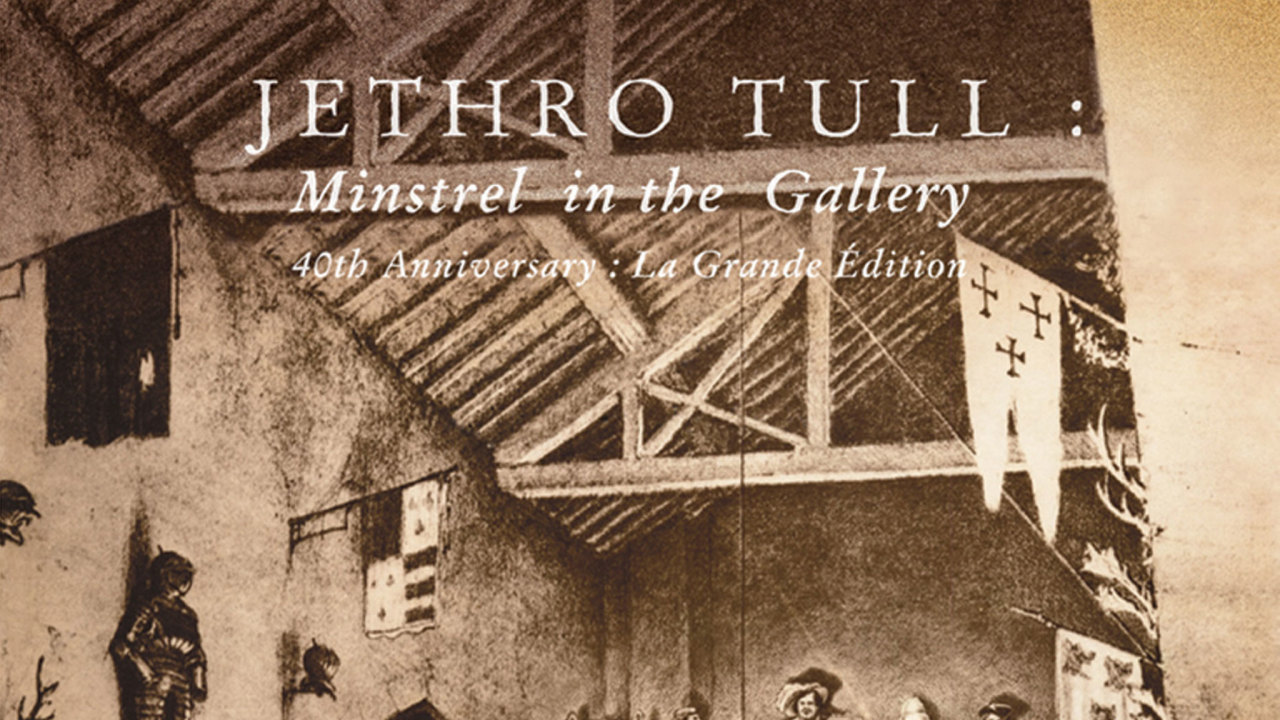Minstrel In The Gallery was a distillation of everything Jethro Tull had done to date: heavy riffage; instrumental passages of rococo complexity; folk derivations; and acoustic love songs with strings.
And it was one of the last great examples of Ian Anderson’s depictions of 70s urban life as a parade of Hogarthian misfits: furtively masturbating businessmen, sex crazed pygmies, buxom prostitutes, dodgy policemen, match-sellers and bag ladies all play their part on the lengthy, stylistically diverse suite, Baker Street Muse.
Anderson’s parade of Hogarthian misfits. Remixed and in 5.1.
In the notes that accompany this package, Anderson wisely reminds us that the songwriter isn’t necessarily to be equated with the song. But on the title track we find him once again in the romanticised outsider role of the minstrel, the commentator holding the cracked mirror up to society. And he did wear a codpiece after all. The song is virtually Tull in microcosm, with Anderson strumming on acoustic guitar looking down from his metaphorical gallery at the audience, before a startling minute or so of what sounds like a heavy metal take on the obsessively ornamented style of A Passion Play, and then it steadies itself into one of the group’s most memorable songs.
Cold Wind To Valhalla carries a traditional folk feel with lyrics that allude to Norse myth, all whipped along in an onrushing band arrangement with hyperventilating flute. By contrast, the string-swathed sexy liaisons of Black Satin Dancer, the tune struggles to carry the string arrangements and the group’s instrumental passages sound over-fussy.
The standalone releases on CD and vinyl – and the main meat of the full package – is the Steven Wilson remix of the original album, which is crisp and vivid with plenty of wallop. If you want the mix that’s served so well for 40 years it’s shunted onto a DVD on the double CD/DVD package – so hard luck if you don’t have a surround sound set up. Also on the DVDs are the original quad mix, the 5.1 surround sound mix, video footage from Paris Olympia, and an
e-book with track by track commentaries by Anderson and band interviews.
On the two CDs there are some juicy bonuses: outtakes, an exquisite B-side Summerday Sands and BBC sessions, including a particularly menacing version of Aqualung. There is also over an hour of audio of the Paris Olympia concert, which involves Pythonesque looning around, particularly dynamic versions of songs, and flute and guitar solos that now sound rather superfluous. But this was 1975, after all.

